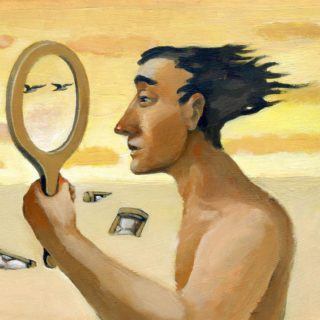Life Force Energy: What It Is and 5 Ways to Increase It
My wife and I planted a cinnamon tree in our garden. We purchased it at a nursery. It is approximately ten feet (3½ meters) tall! When we bought it, the roots were bundled tight in a burlap sack to restrict their growth while it was awaiting someone to come and claim it. We dug a hole, cut the burlap sack, and planted the tree into the earth, allowing the roots to expand without restrictions. All of this felt nourishing. Its rich potential can now be fully realized. I look forward to watching it grow. There is a similarity between us and the cinnamon tree. Our roots, too, are bundled and confined - not with burlap but limited consciousness. What can we do to release our full potential, for we are plugged into the matrix of all existence, and so much is available to us? One very effective yet incredibly overlooked method is to increase the life force energy available to us. What Is Life Force Energy? All living things, including plants, animals, insects, and human beings, draw life force from the cosmic reservoir naturally and without awareness; it just happens, and is a part of being alive. The life force that nurtures the cinnamon tree is the same life force that fuels the barking dog and allows the grasshopper to leap in the field. It is the force and energy that maintains life in all things. It exists everywhere in abundance. While invisible and undetectable by human senses, its existence has been well documented by various mystery schools and is known by many different names. The term “Life Force” is one of those names. Synonyms include Prana, Qi, and many more. Our mind and body are constantly being regenerated and revitalized by this vital energy that circulates throughout the cosmos. This life force reaches all. It ties all things together in one dynamic wash of ever-flowing, renewing energy. This river of energy is flowing all around us. We live, move, and have our being in it. Each of us receives a minimum amount of life force energy just by being alive and human. But the amount of life force each individual receives varies greatly and is affected by a number of factors. It is possible to draw directly from the great cosmic reservoir of undifferentiated energy and to increase our intake. When we do, life force energy is transmuted within our being into all the different forms of activity that go to make up a human life. If our vital energy goes up, every factor of our nature is quickened and intensified; the artist paints with new power and inspiration, the insight of the scientist is doubled, the skill and strength of the athlete are increased, the savvy decisions and actions of the entrepreneur work like magic. Whatever we are becomes intensified. The amount of this energy we access is limited solely by our capacity for realization. If we can increase our realization and get rid of our inhibitions [...]






